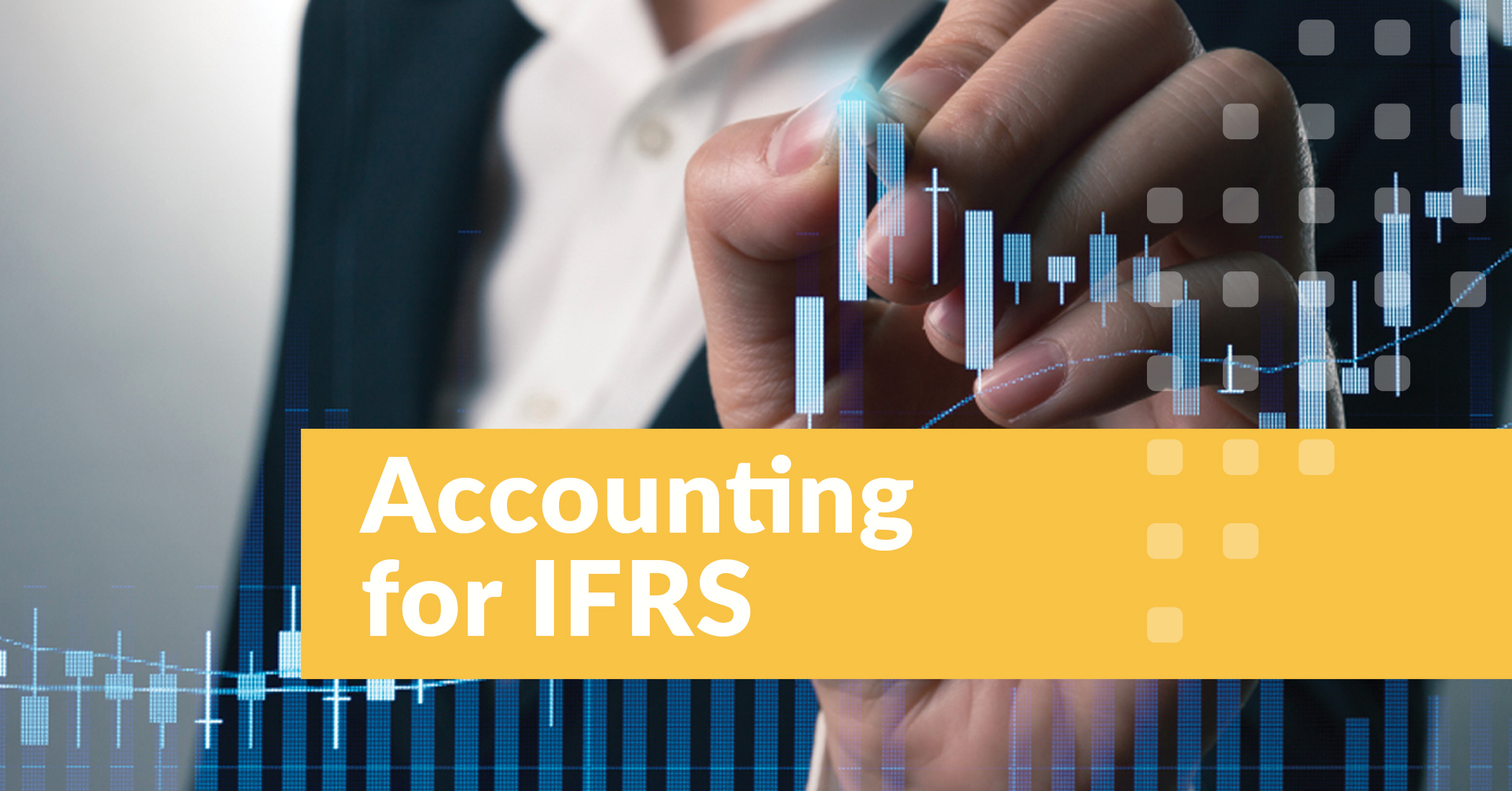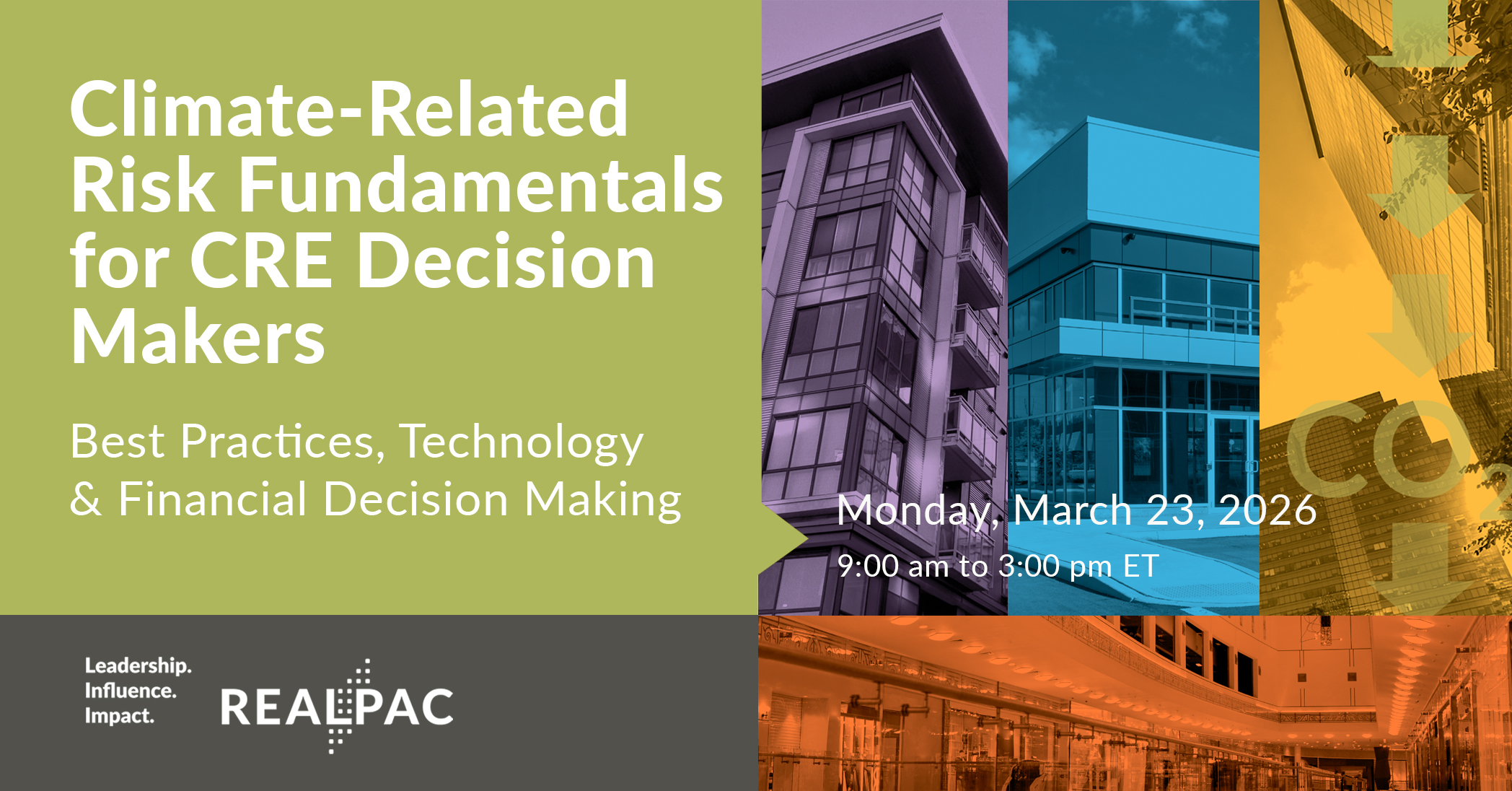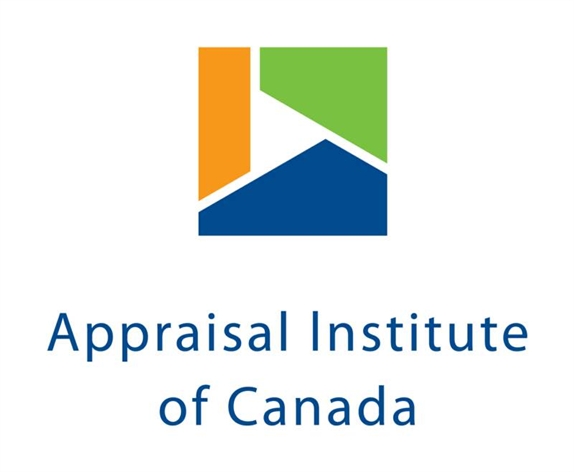Course Descriptions

Accounting for IFRS
Accounting for Real Estate Entities under IFRS online course will provide course participants with a review of REALPAC’s recommendations for the interpretation and application of IFRS for the publicly-accountable real estate investment and development industry.
More about Accounting for IFRS Less about Accounting for IFRS
Accounting for IFRS
Accounting for Real Estate Entities under IFRS online course will provide course participants with a review of REALPAC’s recommendations for the interpretation and application of IFRS for the publicly-accountable real estate investment and development industry in Canada, in specified areas such as:
- cost capitalization
- leasing
- sales of real estate, acquisitions
- joint arrangements
- fair value measurement

Climate-Related Risk Fundamentals for CRE Decision Makers
This course is intended to help CRE decision makers plan for and address climate-related risks and opportunities at their buildings.
Climate-Related Risk Fundamentals for CRE Decision Makers
Climate-Related Risk Fundamentals for CRE Decision Makers – Best Practices in Financial & Technology Decision Making
This course is intended to help CRE decision makers plan for and address climate-related risks and opportunities at their buildings.
Course Overview
- Overview of transition and physical climate-related risks and opportunities for CRE
- Climate-related risk considerations at the portfolio vs asset level
- Climate-related risks through the lens of asset and investment managers – investment types & life cycle, total returns, net operating income, capital expenditures and value
- Overview of building codes, regulations and programs pertaining to GHG emissions and climate adaptation for buildings
- Understanding of new energy and emission reduction technologies for buildings
- Carbon transition planning, prioritizing emission reduction measures, regional electricity grid considerations, and carbon transition decision-making
- Property resilience planning and decision-making to address increased frequency of extreme weather events
Target Audience (Who Should Attend)
- Owners looking to gain a better understanding of climate-related risk considerations and decision-making
- Investors looking to incorporate climate-related risk considerations into the investment decision-making or engage third-party asset managers on the topic
- Asset managers looking to deepen their understanding and integrate climate-related risks into their decision-making
- Sustainability professionals looking to broaden their understanding of climate-related risks from a building owner’s perspective
- Legal, accounting, banking, finance, and advisory client service professionals looking to broaden their understanding of climate-related risks from their clients’ perspective
- Brokers, analysts, property managers, leasing specialists, and others looking for an opportunity to broaden their knowledge of climate-related risks
Key Learning Outcomes
- Understanding of transition and physical climate-related risks and opportunities
- Understanding of climate-related risks through the lens of asset and investment managers
- Understanding of evolving building codes, regulations and programs pertaining to GHG emissions and climate adaptation for buildings
- Understanding of new energy and emission reduction technologies for buildings
- Understanding of the challenges for building owners around carbon transition planning – and decision-making strategies
- Understanding of the challenges for building owners around flooding, extreme heat, wildfires and windstorms – and decision-making strategies
Instructors:
- Jani Loots, Director – Climate and Decarbonization Practice Co-Lead, North America, JLL
- Lachlan MacQuarrie, Industry Fellow, Vice President, Customer Success, Intelligent Buildings
Logistics:
- All course material will be available digitally, attendees should ensure they bring a laptop or digital device
Agenda:
- 8:30 – 9am: Continental breakfast
- 9am: Instruction begins
- 12:30pm: Lunch
- 3pm: Course ends

Fundamentals
This course will provide new and existing industry members with the institutional and economic context for commercial real estate investment and development in Canada. This course is not part of the RPIC program.
Fundamentals
The objective of this virtual course is to learn the institutional and economic context for commercial real estate investment and development in Canada, understand the main transaction types, and to learn how to practically apply real estate investment analysis in undertaking those transactions. Students will gain an understanding of real estate cash flows and risks of different property types, and the main risk management techniques in those transaction types.
COURSE OVERVIEW
- Basic Real Estate economics
- Law & Regulation – interests in land, title & tenure, planning, zoning and land use
- Basic valuation principles, financial leverage and the capital stack
- Creating proformas, choosing and applying discount rates and terminal cap rates on investment properties
- Investment analysis of development properties
- Structuring acquisitions, leases, and mortgages
- What to fight for in a purchase and sale negotiation
KEY LEARNING OUTCOMES
- Understanding the various approaches to valuation and their flaws
- Understanding the drivers of revenue and expenses
- Understanding an owner’s ability to improve cash flow or limit risks to cash flow
- Understanding the legal fundamentals involved in real estate investment
- Understanding the impact of financing on income producing investments
- Understanding how value is created through successful development
- How risk is transferred through properly structured agreements.
WHO SHOULD ATTEND
- Mid-career professionals who want to broaden out their knowledge or exposure
- Mid-career and senior executives new to the real estate industry
- Directors of real estate companies
- Lenders to real estate
- Regulators, including urban planners and engineers
- Real estate professionals interested in understanding the context of their business
- Real estate agents looking for a broader understanding
- Those beginning their careers in real estate

Low Carbon Fundamentals
The transition towards low carbon real estate assets and portfolios is gaining considerable momentum. It is a new and challenging space that executives from across a range of real estate functions need to understand.
More about Low Carbon Fundamentals Less about Low Carbon Fundamentals
Low Carbon Fundamentals
The transition towards low carbon real estate assets and portfolios is gaining considerable momentum. It is a new and challenging space that executives from across a range of real estate functions need to understand. This course will provide participants with a practical understanding of core low carbon concepts from a building owner’s perspective. It will address fundamentals across a range of topics including greenhouse gas accounting, asset and portfolio level standards, targets and pathways, low carbon technologies and transition plans, reporting and 3rd party verification.
The course will feature experts from across the Canadian commercial real estate and real-world case studies to foster a collaborative learning environment and practical takeaways for attendees.
WHO SHOULD ATTEND: The course is designed for professionals across development, investment, asset management and corporate functions. Participation in this program is limited to individuals who are legally entitled to work in Canada according to the relevant provincial and federal legislation and regulations as a Canadian citizen, permanent resident, or individual who has been granted status as a refugee.

Proforma
This course will cover the pro forma as your road-map to making informed feasibility decisions on development projects and tracking from commencement to completion.
Proforma
This course will cover the pro forma as your road-map to making informed feasibility decisions on development projects and tracking from commencement to completion. Participants will be led through the step by step construction and manipulation of an industry-accepted commercial office and residential investment pro forma.
COURSE CONTENT
- Identify the relevant project data required to begin crafting a pro forma
- Assess/Estimate Cost Inputs:
- Project Revenue Inputs:
- Build Operating Cost Statement:
- Build Cash Flows
- Valuation
- Sensitivities Analyses
- Project Sign offs:
- Development Management:
- Assess/Estimate Cost Inputs:
- Project Revenue Inputs:
- Condo Fees and Taxes
- Build Cash Flows
- Valuation
- Sensitivities Analyses
- Project Sign offs
KEY LEARNING OUTCOMES
How to undertake due diligence and assess in detail the feasibility and valuation of a commercial and residential development project pre and post construction by building and using an XL pro forma that accounts for:
- Land and related cost
- Zoning and Site Plan
- Design
- Timing
- Construction
- Soft Costs
- Financing
- Leasing
- Cash flows – Development and Operating
- Operating statements
- Valuation methods and investment strategy
- Partnership models
- Sensitivity analyses at multiple data points
- Tracking from commencement to completion
How to construct a pro forma to provide:
- Both detailed analyses and quick sensitivity analyses
- Structuring to provide for partnership models and hurdles
- Assessing financing alternatives
- Understanding the impact of key variables on overall costs, revenues and returns
- Identify common misses and errors
- Understanding the key differences between a commercial leasing project and a residential condo project pro forma

Asset Management (RPIC)
This course will help attendees learn to manage the numerous and varied issues between owners, consultants, property managers, accountants, tenants, capital markets and regulatory authorities.
More about Asset Management (RPIC) Less about Asset Management (RPIC)
Asset Management (RPIC)
Real estate asset management is a complex and diverse function that has evolved over the past few decades to emerge as an integral area of practice within the world of commercial real estate. There are many approaches, definitions and models of asset management, and the skills required of and functions performed by an asset manager depend on several variables of a portfolio, including: the size and scale of an organization, the number and type of assets under management, the business goals of the owners(e.g. current income vs. capital gain), as well as the nature of the mandate (internal or outsourced to a third party).
Asset management continues to expand in order to help deal with the numerous and varied issues between owners, consultants, property managers, accountants, tenants, capital markets and regulatory authorities. This course will feature case studies and group exercises. Attendees will be encouraged to participate in moderated class discussions.
 |
Eligible for Continuing Education Credits with BOMI. |
COURSE CONTENT
- Overview of the asset management function
- Portfolio management
- Review of budgeting and planning processes
- Mergers and acquisitions
- Evaluating hold/sell decisions
- Public and private financing
- Build vs. buy decision making parameters
- Valuation analysis
- Client services and reporting
KEY LEARNING OUTCOMES
- Familiarity with the skills and experience required of an Asset Manager
- Clearer knowledge of the general goals of the Asset Manager
- Greater awareness of the advantages and disadvantages of internal, third party, and fund structure
- Asset Management mandate models
- Deeper knowledge of the challenges facing asset managers and the interplay of asset managers with other organizational functions
- Ability to identify the key performance indicators used by the asset manager in performing his or her function
WHO SHOULD ATTEND
- Asset managers looking to deepen their understanding and are keen to study and interact with other professionals involved in asset management
- Real estate professionals wishing to pursue a career in asset management
- Owners looking to gain a better understanding of the advantages and disadvantages of different asset management mandates
- Investors looking to invest in a real estate fund or engage third party asset managers
- Legal, accounting, banking, finance, and advisory client service professionals looking to broaden their understanding of their clients’ needs
- Brokers, analysts, property managers, leasing specialists, and others looking for an opportunity to broaden their knowledge in this field
- HR and recruiting professionals looking to better understand the skills, experience, and value of employees and prospective candidates

Development (RPIC)
This course takes participants through the feasibility analysis process from beginning to end along with exploring the role of each member of the development team including consultants and the community.
Development (RPIC)
Development is a critical component of community building. The development business is multi-disciplinary where the developer brings one or more of finance, entitlement, marketing and deal making expertise to the table along with access to capital.
This virtual course takes participants through the feasibility analysis process from beginning to end along with exploring the role of each member of the development team including consultants and the community. The development of multiple property types are explored including mixed use incorporating case studies, lecture and discussion. In addition, the course will discuss financing and various sources of risking all aspects of the development process.
 |
Eligible for Continuing Education Credits withBOMI |
| Eligible for Continuing Education Credits with CIP |
COURSE CONTENT
- Overview of the development function, the value added by development and the development process
- The development team and their roles
- The feasibility analysis exercise including site analysis, zoning, market analysis, design, cost estimation, financial analysis and highest and best use
- The development process
- Management and key sources of risk at different phases of the development process
- Financing the development process – issues, risks and pricing
- Perspectives of the various stakeholders – developers, investors, customers, lenders, consultants, service providers, neighbours and regulators
KEY LEARNING OUTCOMES
- Clearer knowledge of the goals and value added by the Developer
- Familiarity with the skills and experience required of a Developer
- Greater awareness of the risks and benefits in the development process
- Knowledge of the design, marketing and sales aspects of development
- Experience in financial analysis and modeling of development projects
- Understanding of the pricing and sources capital and expectations of capital providers
WHO SHOULD ATTEND
- Developers looking to deepen their understanding of development and are keen to interact with other industry professionals
- Professionals wishing to pursue a career in real estate development
- Owners looking to gain a better understanding of the benefits and risks of development and redevelopment
- Investors looking to invest in a real estate development or engage third party developers
- Client service professionals to the development industry looking to broaden their understanding of their clients’ needs

Finance & Investment (RPIC)
This course combines theory and industry practice to help participants examine current topics and emerging issues in the increasingly complex world of real estate finance and investment.
More about Finance & Investment (RPIC) Less about Finance & Investment (RPIC)
Finance & Investment (RPIC)
The market for commercial real estate investment continues to evolve and integrate with broader investment and capital markets. This course combines theory and industry practice to examine current topics and emerging issues in the increasingly complex world of real estate finance and investment.
The primary objective of the virtual course is to introduce tools and refine concepts and techniques that will improve investment, financing and risk management decisions. The course will explore both the “micro-level” pertaining to individual properties and deals, and “macro-level” portfolio and investment management considerations. It is designed to be interactive, with attendees encouraged to participate during lectures and case studies.
 |
Eligible for Continuing Education Credits with BOMI. |
COURSE CONTENT
- The evolution of real estate as an asset class
- Real estate capital market perspectives, trends and emerging innovations
- Structuring the financing of property investment: the “capital stack”
- Investment analysis and valuation of existing (built) properties
- Ratio and discounted cash flow techniques: cap rates and discount rates
- Commercial mortgage capital sources and mortgage underwriting
- Debt financing: impact on risk, return and valuation over the cycle
- Financial analysis of real estate development projects
- The role of real estate in modern mixed asset portfolios
- Public versus private market pricing of real estate equity
- Assessing, pricing and managing real estate investment risk
WHO SHOULD ATTEND
- Commercial real estate professionals with some exposure to finance, investment and/or valuation
- Professionals interested in a more in-depth treatment of the concepts and applications critical to the finance and investment function
- Professionals who specialize in more singular (yet related) functional areas (such as finance, acquisitions, accounting, development)
- Professionals who are keen to explore cutting edge analysis and be exposed to the finance & investment function’s broader context and how it integrates into the larger business
It is expected that participants will have a basic understanding of time value of money concepts and be somewhat familiar with the use of a financial calculator (and/or the finance functions in MS-Excel).
Please Click Here for a Manager Justification Letter
KEY LEARNING OUTCOMES
- Explain why and how institutions invest in real estate
- Value income property using a variety of metrics
- Appreciate the importance of “below NOI” line items in pro formas
- Underwrite a commercial mortgage loan
- Relate cap rates to discount rates, bond yields and property income growth
- Link investors’ expected equity returns to property level returns, debt costs and leverage amount
- Quantify the incremental risks associated with the use of debt financing
- Understand CMBS, CRE CDOs and mezzanine debt and their roles in the credit crisis
- Calculate the incremental cost of additional layers of debt financing
- Derive a net present value and IRR for a development project

Law (RPIC)
This course will focus on the legal underpinnings of real estate, regulatory controls over real estate, and legal best practice in effecting transactions including purchase and sale, leasing and financing.
Law (RPIC)
Commercial real estate is an industry where law and business are intertwined. Title and tenure, planning and land use regulation, and legal contracts such as leases, purchase agreements, construction contracts, loan documents and development agreements play a major role in creating cash flows, reducing risk, ensuring compliance, and ensuring desirable outcomes. Get it wrong, and losses and costs can mount and risks can increase. Understand the legal side, and avoid or substantially reduce risk in real estate transactions.
This virtual course will focus on the legal underpinnings of real estate, regulatory controls over real estate, and legal best practice in effecting transactions including purchase and sale, leasing, financing, construction and development.
 |
Eligible for Continuing Education Credits with BOMI |
| |
Eligible for Continuing Education Credits with CAAMP |
COURSE CONTENT
- Title and Tenure
- Surveys and Searches, David Carter
- Specific Interests in Land, David Carter
- Zoning and Land Use Regulation
- Acquisitions and Dispositions, David Carter
- Mortgage Financing, David Carter
- Leasing
- Construction Law
KEY LEARNING OUTCOMES
- Know the sources of law
- Understand structuring risks and issues with title
- Become familiar with the regulatory environment, and strategies to manage development
- Craft effective acquisition and disposition strategies
- Understand the mortgage and key deal terms
- Discover leasing issues and best practice
- Learn the major construction documents and construction processes
WHO SHOULD ATTEND
The virtual course will be of interest to the following real estate and lending industry participants: Property Owners, Investors and Developers, Mortgage and Property Brokers, Mortgage and Loan Servicers, Asset Managers, Appraisers, Lawyers, Accountants, Financial Regulators, among other types of stakeholders.

Leasing (RPIC)
This course will allow attendees to examine the relationship between strategic leasing, asset values and real estate management.
Leasing (RPIC)
Become knowledgeable about the leasing process from experienced industry leaders on the owner/tenant/brokerage sectors in the Toronto leasing market. This course will allow attendees to examine the relationship between strategic leasing, asset values and real estate management. Registrants will learn from industry leaders about the importance of structuring sound leasing transactions to leverage the value of the workplace and return value to the enterprise.
Key learning outcomes:
- Discover the benefits and risks of leasing vs. owning
- Learn the terminology
- Learn about workplace trends and drivers
- Recognize the importance of market data
- Appreciate leasing’s role in projects and value creation
- Learn about the negotiating process
- Discover the top 10 clauses to protect or negotiate

Lending (RPIC)
The primary objective of this course is to identify and understand the goals and underwriting methods of real estate lending and explain the rationale behind varying structures and approaches.
Lending (RPIC)
The primary objective of this virtual course is to identify and understand the goals and underwriting methods of real estate lending and explain the rationale behind why varying structures and approaches are used by different lenders. In addition, the curriculum will include a combination of theory and practice, providing real-world financing examples from within the Canadian marketplace as well as comparing it with other markets, together with utilizing a combination of lectures, interactive panel discussions and business cases to provide students with a fulsome and interactive learning experience.
| Eligible for Continuing Education Credits with BOMI. | |
| Eligible for Continuing Education Credits with CAAMP. |
COURSE CONTENT
- The use of debt and financial leverage – identifying what is the right amount
- The Canadian commercial mortgage market: identifying players, market size and share by lender type
- How different lenders lend and why – funding sources, preferences and motivations
- How lenders employ financial leverage themselves – the economics behind financial institutions
- Identifying assets classes by relative volatility and financeability in Canada
- Investment real estate vs. business (operating) real estate – identifying underwriting differences
- The 8 C’s of mortgage loan underwriting
- Structuring commercial loans by type: construction, term and revolver
- Identifying underwriting metrics and assessing future refinance risks
- Floating vs. fixed – benefits and limitations of each
- Breakage costs: swaps, yield maintenance and defeasance
- Senior secured vs. senior unsecured – what’s the difference and who qualifies?
- Understanding the differences between A/B notes and 1st mortgage/2nd mortgage loan structures
- Loan syndication – where, how and why?
- Market downturns and mitigating risk – amendments, extensions and other loan modifications
- Loan defaults and foreclosure – understanding lenders’ options, rights and remedies
- Lessons learned from the past – both from locally and abroad
- Where are we now? Current and emerging market trends
KEY LEARNING OUTCOMES
- Clearer knowledge of the general goals of employing leverage
- Familiarity with the skills and experience required of being a lender
- Greater awareness of the rationale and benefits and limitations of different loan structures and features
- Ability to calculate key performance metrics used by lenders in underwriting a loan
- Better understanding of the Canadian lending landscape, who the major players are and how and why they lend
WHO SHOULD ATTEND This course will be relevant to the following lender types:
- Commercial and corporate banks
- Insurance companies
- Pension funds
- Trust companies
- Credit unions
- Private lenders and other non-bank financial institutions
- Mortgage investment corporations and mortgage REITs
- Foreign lenders
- CMBS and conduit lenders
In addition, the course will be of interest to the following real estate and lending industry participants: Property owners, investors and developers, mortgage and property brokers, mortgage and loan servicers, asset managers, appraisers, lawyers, accountants, financial regulators, among other types of stakeholders.

Sustainability (RPIC)
This course will provide participants with a practical understanding of sustainability standards and frameworks in the context of all major asset classes.
More about Sustainability (RPIC) Less about Sustainability (RPIC)
Sustainability (RPIC)
This course provides participants with a practical understanding of sustainability standards, regulations, risks and opportunities in the context of commercial real estate (across all major asset classes).
The curriculum includes a combination of instructor led content, guest speakers & group exercises to foster a collaborative learning environment and practical takeaways for attendees.
Course content:
- Energy & greenhouse gas management,
- Climate risk – physical risks & transition risks
- Decarbonization pathways & tools for CRE
- Onsite renewable energy & virtual power purchase agreements (VPPAs)
- Sustainability reporting
- Canada’s new greenwashing provisions
- Sustainable finance
- Valuations & low carbon assets
Key learning outcomes:
- Gain awareness of the key sustainability issues and trends affecting commercial real estate
- Develop the ability to identify and prioritize sustainability risks and opportunities
- Get a better understanding of the Canadian sustainability regulatory landscape for commercial real estate
- Increase your familiarity with key voluntary sustainability standards and frameworks for commercial real estate
- Gain a high-level understanding of performance levels across key sustainability issues (e.g. ‘beginner’, ‘intermediate’ and ‘advanced’)

Valuations (RPIC)
This course will provide participants with a practical understanding of valuation methodologies and techniques in all major asset classes and will include real world case studies and valuation modelling exercises.
Valuations (RPIC)
![]()
This course is being offered in collaboration with Altus Group
This course will provide participants with a practical understanding of valuation methodologies and techniques in the context of all major asset classes and will include real world case studies and valuation modelling exercises. It will also address some of the key differences in valuation issues and techniques and their impact as well as emerging valuation trends and technologies.
 |
Eligible for Continuing Education Credits with BOMI |
 |
Eligible for Continuing Education Credits with AIC. |
| Eligible for Continuing Education Credits with RICS. |
COURSE CONTENT
- Background to valuation including market factors (supply and demand), legal issues, definitions, highest and best use
- Standard methods of valuation and an introduction to the three primary approaches
- Real estate leases and their analysis for valuation purposes
- Discounted cash flow modelling, capitalization rates, discount rates and data sources
- Valuation methodology and modelling exercise based on multi-tenant industrial property and multi-tenant office building examples
- Case study for an office valuation exercise
- Introduction to Argus DCF modelling software
- Valuation methodology and modelling exercise based on a retail property
- Case study for a retail property valuation exercise
- Global valuation standards and emerging trends in valuation including new technologies and techniques
KEY LEARNING OUTCOMES
- Know which primary and secondary valuation approaches to use for all asset types
- Critically review a cash flow pro forma and identify the key valuation issues, including sensitivity of assumptions
- Understand the appropriate applicable valuation techniques and assumptions to use for different asset classes
- Complete and review a basic cash flow model for an income producing property
WHO SHOULD ATTEND This course will be of benefit to those active in the areas of underwriting, acquisition/ disposition, investment sales, property and asset management, and valuation. It is designed for those with under 10 years of experience and /or those who have only moderate exposure to valuation issues and wish to increase their proficiency.

Offered in partnership with the Ted Rogers School of Management at Toronto Metropolitan University, the Real Property Investment Certificate encompasses all disciplines and offers a unique perspective into the different facets of the commercial real estate industry. Visit realpac.ca/rpic to learn more.
Disclaimer
The RPIC Program is an executive education program designed as a multi-course professional development offering. While the RPIC Program is designed to be completed as a full offering, REALPAC reserves the right to modify, suspend, or discontinue the program, its structure, content, or certification components at any time, without prior notice and at its sole discretion. Each course provides independent educational value and may be taken on a standalone basis. By enrolling, participants acknowledge these terms and accept that program modifications may occur. Questions regarding program updates, transitions, or course availability should be directed to Kelsey Armstrong.


